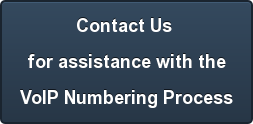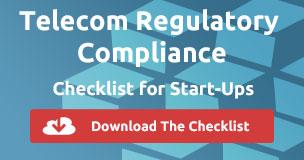 The Regulatory Mix, TMI’s daily blog of regulatory activities, is a snapshot of PUC, FCC, legislative, and occasionally court issues that our regulatory monitoring team uncovers each day. Depending on their significance, some items may be the subject of a TMI Briefing.
The Regulatory Mix, TMI’s daily blog of regulatory activities, is a snapshot of PUC, FCC, legislative, and occasionally court issues that our regulatory monitoring team uncovers each day. Depending on their significance, some items may be the subject of a TMI Briefing.
TELECOM
FCC
The FCC has extended the National Deaf-Blind Equipment Distribution Program (NDBEDP), as a pilot program, for one additional year, until June 30, 2017. The NDBEDP provides up to $10 million annually to support programs that distribute communications equipment to low-income individuals who are deaf-blind and has operated since July 2012. It was set to expire on June 30, 2016. The FCC said that extending the pilot program for an additional year will enable the NDBEDP to continue providing communications equipment to low-income individuals who are deaf-blind without interruption while it completes the proceeding that is underway to adopt rules to govern a permanent NDBEDP.
Separately, the FCC announced it is accepting applications from entities interested in receiving certification to distribute equipment under the National Deaf-Blind Equipment Distribution Program (NDBEDP) to qualifying residents in Florida and Washington. Applications will be accepted until June 10, 2016. In 2012, the FCC selected Florida Telecommunications Relay, Inc. (FTRI) as the NDBEDP certified program for the state of Florida and the Department of Social and Health Services – Office of the Deaf and Hard of Hearing (DSHS-ODHH) as the NDBEDP certified program for Washington. In May 2016, both entities informed the FCC that they would relinquish their certifications as of June 30, 2016. The certified programs selected for Florida and Washington will be reimbursed for eligible NDBEDP related costs that they incur after their selection and, if extended, during the fifth year of the NDBEDP pilot program, which would begin July 1, 2016, and end June 30, 2017. Any public program or private entity may apply to the FCC for certification if it meets the FCC’s qualification requirements as described in the Public Notice.
Oklahoma
The Corporation Commission of Oklahoma is seeking comment on rule changes intended to implement the new law requiring VoIP providers to contribute to the Oklahoma Universal Service Fund (OUSF). A technical conference on the proposed rules will be held June 8, 2016. Written comments may be filed by June 24, 2016. The Commission will consider the emergency adoption of the rules at its June 28, 2016, public hearing. TMI Briefing Service subscribers see Briefing dated 5/31/16.





